
SHARE THIS ARTICLE:
2015 Conference Faculty Biographies
 Brian A. Fallon, MD, MPH (Conference Director)
Brian A. Fallon, MD, MPH (Conference Director)
Professor of Psychiatry
Director, Lyme and Tick-Borne Diseases Research Center
Columbia University Medical Center
Director, Center for the Study of Neuroinflammatory Disorders & Biobehavioral Medicine, New York State Psychiatric Institute
New York, NY
[email protected]
Lyme and Tick-Borne Diseases Research Center
PANDAS, PANS, & Lyme
Brian A. Fallon, MD, MPH. Dr. Fallon is director of the Lyme & Tick-borne Diseases Research Center at Columbia University Medical Center where he leads a team focused on biomarkers, diagnostics and treatment of chronic Lyme symptoms. His team’s recent work has included the testing of novel diagnostic assays in a large community study, with the net result of the identification of a more sensitive Lyme Western blot. His team’s work on Lyme encephalopathy led to the discovery of hundreds of unique proteins present in the CSF of Lyme patients but not in the CSF of patients with chronic fatigue syndrome or healthy controls. His team’s current focus is on clarifying the immunologic profile and neural circuitry of patients with persistent symptoms. His team is also investigating the CNS metabolic effects of intravenous ceftriaxone using MR Spectroscopy to probe glutamatergic transmission. Dr. Dwork in his Center is examining the neuropathologic findings in post-mortem studies of patients with chronic Lyme symptoms. Dr. Moeller in his Center is examining the interaction between peripheral immunologic markers, central immune markers, and brain neurocircuitry among patients with chronic symptoms with the goal of identifying of biomarkers to help guide treatment recommendations.
Dr. Fallon serves on the editorial and review board of three journals, has lectured and published widely, and most recently has led an international team for the American Psychiatric Association’s revision of DSM-5 to clarify the prevalence of illness anxiety in the general population.
 Richard T. Marconi, PhD (Conference Co-Director)
Richard T. Marconi, PhD (Conference Co-Director)
Professor of Microbiology & Immunology
School of Medicine
Virginia Commonwealth University, Richmond, VA
[email protected]
https://www.vcu.edu/micro/lab_web/marconi/people/
New Advances in the Pursuit of a Combinatorial Human Vaccine for Lyme Disease & Anaplasmosis
Dr. Marconi is a Professor in the School of Medicine at Virginia Commonwealth University Medical Center. He earned his Ph.D. at the University of Montana where he studied the functional role of ribosomal RNA and its interactions with antibiotics and transfer RNA. He conducted his post-doctoral training at The Roche Institute of Molecular Biology (Nutley, NJ) and the National Institutes of Health, Rocky Mountain Laboratories (Hamilton, MT). At Roche, Dr. Marconi trained under Dr. Herbert Weissbach (National Academy of Sciences) and Dr. Nathan Brot studying bacterial physiology. His research efforts focused on the study of the metabolic pathways in Escherichia coli. Dr. Marconi then accepted an Intramural Research Training Award with the NIH to study the pathogenesis of Lyme disease and other spirochetal infections at Rocky Mountain Laboratories. Dr. Marconi has 28 years of experience in the study of pathogenic spirochetes. His current research interests are diverse and include the study of molecular mechanisms of pathogenesis of Lyme disease (Borrelia burgdorferi), tick borne relapsing fever and periodontal disease. A considerable emphasis of research in the Marconi lab is translational and includes projects directed at the development of novel chimeric vaccines and diagnostic assays for tick borne diseases and the development of non-invasive preventative and therapeutic strategies for periodontal disease. His laboratory has demonstrated experience in product development and has patented an innovative chimeric vaccine for Lyme disease. Dr. Marconi is well recognized for his diverse research accomplishments and has lectured worldwide. Dr. Marconi has an extensive track record of service to the scientific community. He is an editor for the journal Pathogens and Disease and serves on the editorial board of several additional journals. He has served as the President of the Virginia Branch of the American Society for Microbiology, served on numerous public and private advisory boards, and participated in over 120 national and international review panels (including service as a chartered member on the Vaccine for Microbial Diseases, NIH study section). To date he has published more than 90 high impact peer reviewed research articles, book chapters and reviews.
 John N. Aucott, MD
John N. Aucott, MD
Assistant Professor
The Johns Hopkins University School of Medicine
Attending Physician, Thayer Firm
The Johns Hopkins Hospital, Baltimore, MD
[email protected]
Serum Cytokine and Chemokine Biomarkers for Post-treatment Lyme Disease
Dr. Aucott is a graduate of the University of California at Berkeley where he was elected to the membership of Phi Beta Kappa. He attended the Johns Hopkins University School of Medicine, and is a diplomate of the American Board of Internal Medicine with sub-specialty training in Infectious Disease and Geographic Medicine at University Hospitals of Cleveland. He served as the Section Head for General Internal Medicine and the Residency Program Director at the Cleveland Veterans Affairs Medical Center while on the faculty at Case Western Reserve University School of Medicine from 1989-1996. He was promoted to Associate Professor of Medicine in 1995.
In 1996, Dr. Aucott returned to Baltimore to join the clinical Faculty of Medicine at Johns Hopkins School of Medicine where his focus has been on clinical translation research in Lyme disease. He is currently the Principal Investigator for the prospective cohort study, SLICE, examining the impact of Lyme disease on long term health outcomes and immune function. This is a multiyear, Johns Hopkins IRB approved study examining patients with acute Lyme and erythema migrans who are characterized before initial antibiotic therapy and in follow up for two years after therapy. To date, there have been over 170 Lyme patients and matched controls enrolled resulting in samples from over 1,000 different patient visits
The extensive biorepository of samples from the SLICE study has formed the basis of numerous collaborators from around the country that have focused on understanding the immune pathophysiology of Lyme disease. The quality of the SLICE samples and meticulous clinical characterization of the patients has made this sample set invaluable.
In April 1, 2015 Dr. Aucott was appointed the Director of the Lyme disease Clinical Research Center (LDCRC) in the Division of Rheumatology at Johns Hopkins University. This newly formed translational research center has a clinical site for participant recruitment, examination and sample collection as well an established research laboratory under the direction of Dr. Mark Soloski at the Johns Hopkins Bayview Medical Center.
Frederic Blanc, MD, PhD, HdR 
MD in Neurology, PhD in Neurosciences,
Authorization to direct PhD student research (Habilitation à diriger des recherches = HdR)
Lyme Neuroborreliosis and Dementia
Head of the neuropsychology team and co-head of the “Centre Mémoire de Ressources et de Recherche” (CMRR) of the University Hospital of Strasbourg, Frederic Blanc is member of the ICube laboratory (University of Strasbourg and CNRS), team IMIS-Neurocrypto.
Dr. Blanc is a specialist of neuropsychological and neurological diseases such as dementia with Lewy bodies, Alzheimer’s disease, neuromyelitis optica, Sjögren’s syndrome, multiple sclerosis and Lyme neuroborreliosis.
His current research interests include:
Biomarkers of dementia with Lewy bodies, Alzheimer’s disease using brain MRI, PET, CSF and blood, particularly at the early stages.
Neural basis of cognition and behaviour in cognitive neurological diseases, using MRI and PET.
 Edward B. Breitschwerdt BS, DVM
Edward B. Breitschwerdt BS, DVM
College of Veterinary Medicine, NCSU, Raleigh, NC 27606
(diplomate) Internal Medicine (Companion Animal
[email protected]
Bartonelloses
Dr. Edward B. Breitschwerdt is a professor of medicine and infectious diseases at North Carolina State University College of Veterinary Medicine. He is also an adjunct professor of medicine at Duke University Medical Center, and a Diplomate, American College of Veterinary Internal Medicine (ACVIM). Dr. Breitschwerdt directs the Intracellular Pathogens Research Laboratory in the Center for Comparative Medicine and Translational Research at North Carolina State University. He also co-directs the Vector Borne Diseases Diagnostic Laboratory and is the director of the NCSU-CVM Biosafety Level 3 Laboratory.
A graduate of the University of Georgia, Breitschwerdt completed an internship and residency in Internal Medicine at the University of Missouri between 1974 and 1977. He has served as president of the Specialty of Internal Medicine and as chairman of the ACVIM Board of Regents. He is a former associate editor for the Journal of Veterinary Internal Medicine and was a founding member of the ACVIM Foundation.
Breitschwerdt’s clinical interests include infectious diseases, immunology, and nephrology. For over 20 years, his research has emphasized vector-transmitted, intracellular pathogens. Most recently, he has contributed to cutting-edge research in the areas of animal and human bartonellosis. In addition to authoring numerous book chapters and proceedings, Dr. Breitschwerdt’s research group has published more that 300 manuscripts in peer-reviewed scientific journals. In 2012, he received the North Carolina State University Alumni Association Outstanding Research Award and in 2013 he received the Holladay Medal, the highest award bestowed on a faculty member at North Carolina State University.
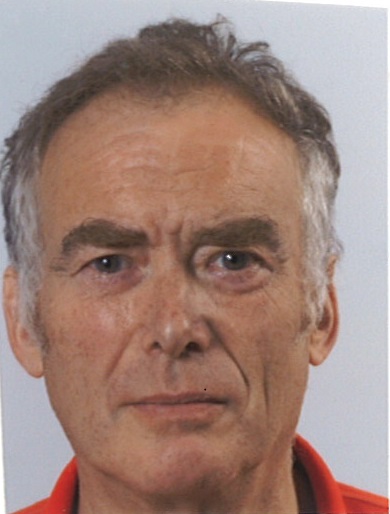 Tim G. Brooks, MA, MB, BChir, LMSSA, MSc, FRCPath, FRSPH
Tim G. Brooks, MA, MB, BChir, LMSSA, MSc, FRCPath, FRSPH
Clinical Services Director
Rare & Imported Pathogens Department
Public Health England
Porton Down Salisbury
[email protected]
Lyme Borreliosis in England
Dr. Tim Brooks is Head of the Rare and Imported Pathogens Laboratory (RIPL) at Public Health England, based at Porton Down in the UK. He qualified in medicine from Cambridge University and King’s College Hospital, London in 1980 and worked briefly in the National Health Service as a trainee surgeon before joining the British Army. After an enjoyable period as a regimental doctor, he returned to hospital medicine and eventually became a pathologist and microbiologist. On becoming a consultant he was advised that he had an interest in dangerous pathogens, and research into therapeutics and vaccines for them. After 10 years at the Defence Scientific and Technical Laboratories at Porton he joined the nascent Health Protection Agency in his present capacity. The department works on hazard group 3 and 4 agents, and provides the UK acute diagnostic facilities for a wide range of arboviruses, ricketssiae and viral haemorrhagic fevers, vector-borne disease and zoonoses, including anthrax, tularemia and Q fever and is a WHO collaborating laboratory for these diseases. From July 2012 RIPL has been home to the Lyme Disease diagnostic and clinical advice service for England and Wales, combining this with wider range of tests offered by the laboratory. With Liverpool University, RIPL is now developing a research programme for Lyme disease and hantavirus in the UK.
Tim Brooks is one of the leading partners in the national Imported Fever Service, which combines the clinical skills of the Liverpool Tropical Infectious Disease Unit and the London Hospital for Tropical Disease with RIPL laboratory services and access to broader PHE specialist laboratories. The IFS offers a 24 hour service for acutely ill travellers arriving in the UK from anywhere in the world. Rare and Imported Pathogens Department are closely involved in the design, assessment and production of therapeutics and vaccine for some of these agents, and provides the surge capacity for diagnostics of major outbreaks of infectious diseases in the UK. Our research interests range from environmental detection of micro organisms and clinical diagnostics, through aerobiology and decontamination, to disease pathogenesis and work for the European Space Agency.
Most recently, Dr Brooks has led the UK laboratory deployment to Sierra Leone in support of the Ebola outbreak, involving setting up three separate labs and involving nearly 300 volunteer staff.
Charles Chiu, MD, PhD 
Associate Professor, Department of Laboratory Medicine and Medicine / Infectious Diseases
Director, UCSF-Abbott Viral Diagnostics and Discovery Center
Associate Director, Clinical Microbiology Laboratory
UCSF School of Medicine
[email protected]
https://chiulab.ucsf.edu
Genomic Investigations of Lyme Disease
Charles Chiu, M.D./Ph.D. is Associate Professor of Laboratory Medicine and Medicine / Infectious Diseases at UCSF, Director of the UCSF-Abbott Viral Diagnostics and Discovery Center (VDDC), and Associate Director of the UCSF Clinical Microbiology Laboratory. He is also a consulting infectious diseases physician at UCSF. Charles received his M.D. and Ph.D. in biophysics from UCLA and subsequently completed an internal medicine residency, infectious diseases fellowship, and postdoctoral research at UCSF. His current research is focused on genomic and transcriptome-based analyses of emerging pathogens such as Borrelia burgdorferi (Lyme disease), Ebola virus, and enterovirus D68, and diagnostic next-generation sequencing assay development for infectious diseases. He has authored more than 50 peer-reviewed publications and holds over 15 patents and patent applications. He is the principal investigator on an NIH R01 grant for bloodborne pathogen screening, a California Initiative to Advance Precision Medicine Award to clinically implement a next-generation sequencing assay for infectious disease diagnosis in hospitalized patients, three foundation awards on the development of new assays for Lyme disease, a UC Center for Accelerated Innovation (CAI) translational grant, and a 7-year UCSF-Abbott Viral Discovery Award.
Sam T. Donta, MD 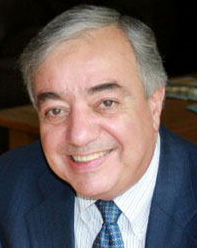
Consultant, Infectious Diseases
Falmouth Hospital, MA
Evidence Suggests Lyme is Not Sexually Transmissable
Dr. Donta grew up in Western Pennsylvania, received his BS from Allegheny College, his MD from Albert Einstein College of Medicine, did an internship/residency in Internal Medicine at U. of Pittsburgh Hospitals, served in Air Force at Otis AFB, MA, did post-doctoral training in Biochemistry at Brandeis, and Fellowship in Infectious Diseases at Boston Univ.
He went to U. of Iowa where he became Professor of Medicine and Chief of Infectious Diseases, then was at U. of Connecticut for 11yrs as Chief of ID, Chief of Medicine at VA, then moved to Boston University/Boston VA for 10yrs before his retirement.
His basic interests have been in microbial toxins, but he has also been involved in a number of clinical trials. For the last 30yrs, he has been interested in Lyme disease, and had an active clinical practice in Falmouth, studying and treating patients with chronic Lyme disease and other multi-symptom disorders such as Chronic Fatigue Syndrome and Fibromyalgia until the practice was retired in May 2015. He remains active as Consultant, Infectious Diseases, at Falmouth Hospital, and will remain active in education and research regarding Lyme disease.
He is the author of 100+ publications on toxins, Lyme Disease, Gulf War Veterans’ Illnesses.
Nicholas Komar, SD 
Vertebrate Ecologist
U.S. Centers for Disease Control and Prevention
Entomology and Ecology Activity, Arbovirus Diseases Branch
Fort Collins, CO
[email protected]
https://www.cdc.gov/ncezid/dvbd/
Heartland Virus, an Emerging Tick-borne Virus?
Dr. Komar is the vertebrate ecologist for the Arbovirus Diseases Branch of CDC’s Division of Vector-Borne Diseases, located in Fort Collins, Colorado. He came to CDC in 1997 after receiving his Science Doctorate in Tropical Public Health at the Harvard School of Public Health, and his Bachelor of Science degree in Biochemistry at the University of Massachusetts. His current interests focus on surveillance and ecology of arthropod-borne viruses of the Americas.
In 2009, Heartland virus was discovered in two patients with fever, leukopenia and thrombocytopenia in northwest Missouri. Through 2013, seven additional cases (two fatal) were detected through active surveillance in Missouri, Tennessee and Oklahoma. Field studies confirmed that the Heartland virus is associated with the Amblyomma americanum tick. Deer and raccoon were frequently exposed. Using seropositive deer and raccoon as indicators for local transmission, a collaborative study with state and federal partners determined that Heartland virus-seropositive animals were present in 13 of 19 states evaluated in the eastern US between 2009 and 2014. Antibody-positive animals were found from Texas to Florida to Maine and across the Midwest. Human patients presenting with fever, leukopenia and thrombocytopenia with a history of tick exposure and otherwise negative for tick-borne infections and/or unresponsive to doxycycline therapy should be considered for possible Heartland virus infection.
Kim Lewis, PhD 
University Distinguished Professor
Director, Antimicrobial Discovery Center
Northeastern University, Boston, MA
[email protected]
https://www.biology.neu.edu/faculty03/lewis03.html
B. burgdorferi persisters and their eradication
Kim Lewis is a University Distinguished Professor and Director, Antimicrobial Discovery Center at Northeastern University in Boston, and a Fellow of the American Society of Microbiology.
He obtained his Ph.D. in Biochemistry from Moscow University in 1980, and has been on the Faculty of MIT, University of Maryland, and Tufts University prior to coming to Northeastern.
Dr. Lewis has authored over 100 papers and is an inventor on several patents. His more notable findings include the discovery of synergistically-acting antimicrobials in medicinal plants; a general method to grow previously “unculturable” bacteria that make up >99% of biodiversity on the planet, the discovery of the culprit of recalcitrant biofilm infections, drug-tolerant persister cells; and a therapeutic for sterilizing biofilms.
Dr. Lewis presented over 90 invited talks. Dr. Lewis has been a permanent member of the Drug Discovery and Drug Resistance NIH Study Section, and Chair of two NIH Study Sections on Drug Discovery. Dr. Lewis has served as a panelist and contributor to the National Academies Institute of Medicine reports on antibiotic resistance in 2010 and 2011. Dr. Lewis is a member of Faculty 1000, a world-wide panel of experts evaluating research advancements. He is a recipient of the MIT C.E. Reed Faculty Initiative Award for an innovative research project (1992), and is a recipient of the NIH Director’s Transformative Grant (2009).
Dr. Lewis has been funded by the NSF, DOE, NIH, ARO, and the Bill & Melinda Gates Foundation.
Apart from his work in Academia, Dr. Lewis has served as a consultant to the Pharmaceutical Industry, The Biotech, and is a founder of two Biotech Companies, NovoBiotic Pharmaceuticals, and Arietis Corporation and is a member of the Scientific Advisory Board of Seres Health.
Erin McGintee, MD 
ENT and Allergy Associates
Aquebogue & Southampton, NY
[email protected]
“Alpha-Gal Meat Allergy after Lone Star Tick Bite”
Erin E. McGintee, MD obtained her medical degree from S.U.N.Y. Stony Brook, and her training in Pediatrics at Children’s Hospital of Philadelphia. Following her residency, Dr. McGintee pursued subspecialty training during a three-year fellowship in allergy and immunology at the Children’s Hospital of Philadelphia, with adult allergy training at the Hospital of the University of Pennsylvania.
She returned to New York in 2009 and joined ENT and Allergy Associates where she practices both adult and pediatric allergy and clinical immunology, seeing patients in Southampton. Her specific interests include asthma, atopic dermatitis, food allergy, and allergic rhinoconjunctivitis/sinusitis.
Board certified in Allergy and Immunology, Dr. McGintee is also a member of the Southampton Hospital Tick-Borne Disease Resource Center’s Medical Advisory Panel where she is the resident expert on the Alpha-gal meat allergy which is carried by the Lone Star Tick. Over the last year, Dr. McGintee has been in demand as a recognized expert on this novel allergy, appearing on both regional and national broadcast news, in many print publications, and also the BBC.
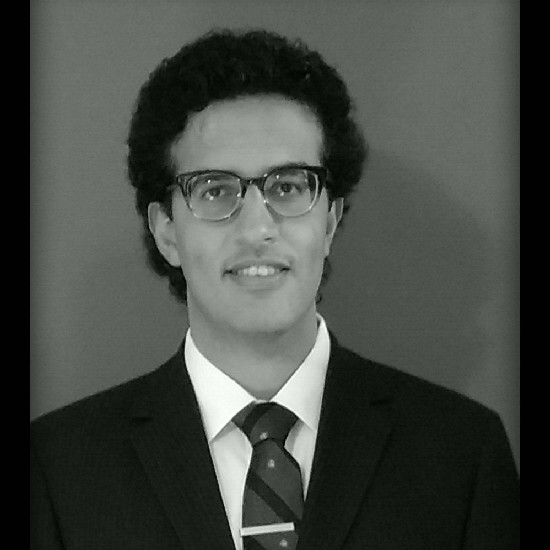 Hassan M. Minhas, MD, MB, BS
Hassan M. Minhas, MD, MB, BS
Department of Law and Psychiatry, Yale School of Medicine.
[email protected]
Suicide & Lyme Neuroborreliosis: Case Report
Hassan M. Minhas, MD completed his general psychiatry residency, and then a fellowship in child and adolescent psychiatry, both at the Warren Alpert Medical School of Brown University in Providence, RI. He is currently a forensic psychiatry fellow at Yale University. Dr. Minhas has been part of the Developmental Disorders Research Program at Brown University, and several councils in the American Psychiatric Association (APA). He is the recipient of many awards and fellowships, some of which include the APA Leadership Fellowship, the Brain Conference Travel Award, the Martin B. Keller Award for the outstanding resident at Brown University in the graduating year, and the Haffenreffer family House Staff Excellence award. Dr. Minhas is interested in healthcare policy, and plans on continuing to advocate for improved psychiatric care and easier access to resources at a national and international level.
Philip J. Molloy, MD 
Medical Director, IMUGEN Diagnostic Reference Laboratory
Assistant Clinical Professor of Medicine,
Tufts University School of Medicine,
Practicing Rheumatologist, Plymouth, MA
[email protected]
Borrelia miyamotoi
Research interests include treatments and monitoring disease activity/outcomes in rheumatoid arthritis; clinical trials for therapeutic interventions for osteoporosis, rheumatoid arthritis and osteoarthritis; and tick-borne diseases
Dr. Molloy has participated in numerous research protocols on Lyme disease and associated tick borne infections, including the treatment of Lyme arthritis and the development of laboratory tests to distinguish Lyme disease from the Lyme vaccine serological response; blood tests for screening blood donors for Babesia; and in characterizing and diagnosing B.miyamotoi.
 Richard S. Ostfeld, PhD
Richard S. Ostfeld, PhD
Senior Scientist/Animal Ecologist
Cary Institute of Ecosystem Studies, Millbrook, NY
[email protected]
https://www.caryinstitute.org/science-program/our-scientists/dr-richard-s-ostfeld
The Ecology of Pathogen Amplification in Communities of Tick Hosts
Richard S. Ostfeld is Senior Scientist at the Cary Institute of Ecosystem Studies, a not-for-profit research institution in Millbrook, New York, dedicated to providing the science behind environmental solutions. He is also Adjunct Professor at Rutgers University and the University of Connecticut. His training was at the University of California-Berkeley (PhD) and University of California-Santa Cruz (BA). He has published >200 peer-reviewed articles, written one book (Lyme Disease: The Ecology of a Complex System, 2011, Oxford University Press), and co-edited 5 books. He serves on the editorial boards of Ecology Letters, and Vector-borne and Zoonotic Diseases, and on the Scientific Advisory Board of the Lyme Research Alliance. He has given several USA Congressional Briefings on environmental change and emerging infectious diseases. Ostfeld’s recent awards and honors include: Elected Fellow of the Ecological Society of America (2014), Elected Fellow of the American Association for the Advancement of Science (2013), Keynote Speaker, Climate Change and Health Symposium, Brown University (2012); C. Hart Merriam Award from the American Society of Mammalogists (2011); and Dutchess County Public Health Partnership Award for research on tick-borne diseases and tick control (2008). His research focuses on ecological determinants of human risk of exposure to infectious diseases, emphasizing Lyme and other tick-borne diseases.
William V. Padula, OD, DPNAP, FAAO, FNORA 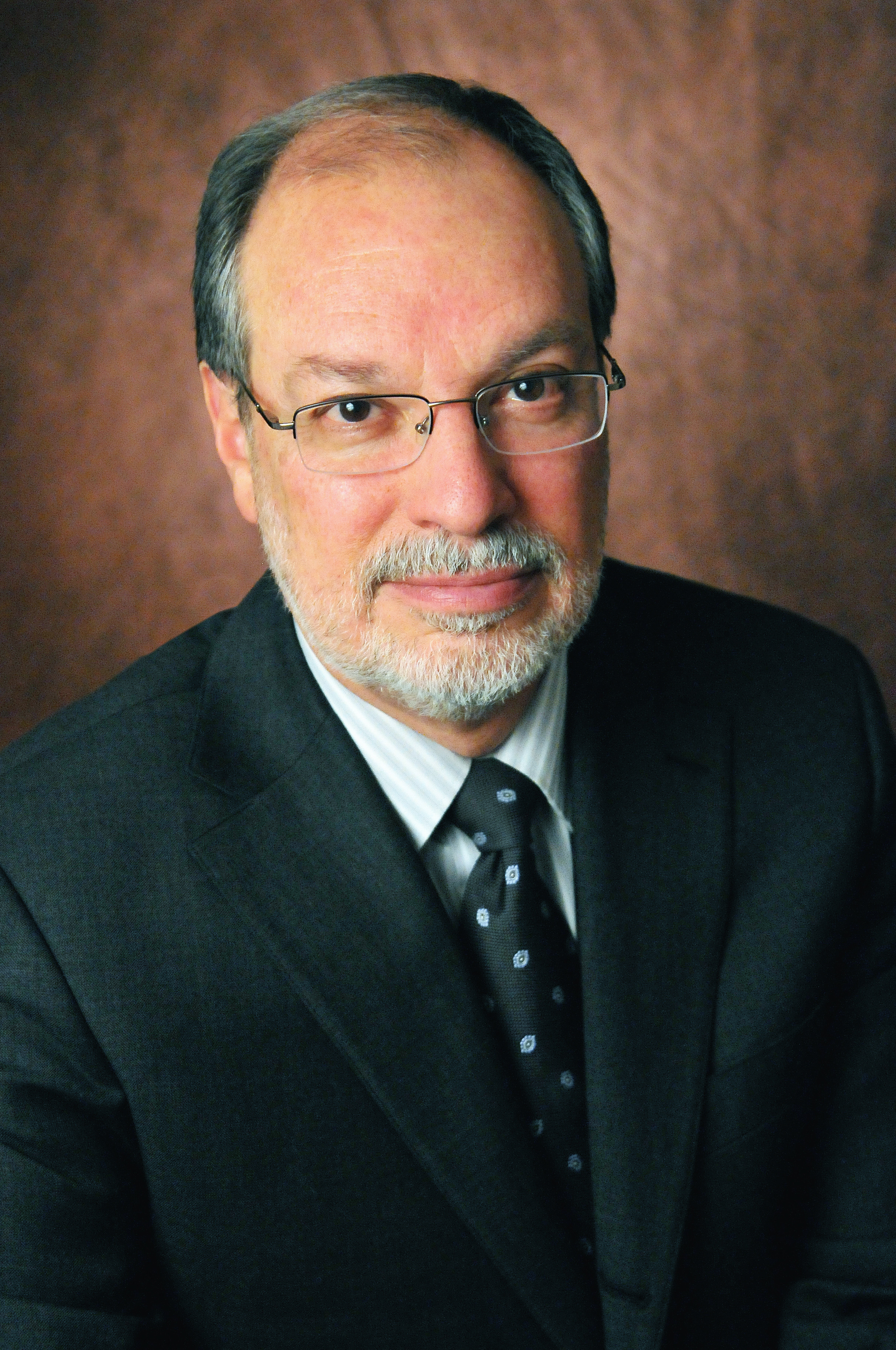
Director of the Padula Institute of Vision Rehabilitation in Guilford, CT
Western University of Health Sciences College of Optometry, faculty
Salus University of Health Sciences College of Optometry, faculty
[email protected]
www.padulainstitute.com
Current Research Implications Regarding the consequences of Tick-borne Disease on Vision and Visual Processing
William V. Padula, OD is Director of the Padula Institute of Vision Rehabilitation in Guilford, CT. He is a Fellow of the American Academy of Optometry and a Fellow and Founding President of the Neuro-Optometric Rehabilitation Association. Dr. Padula is on the faculty for Western University of Health Sciences College of Optometry and Salus University of Health Sciences College of Optometry. He is the past Treasurer of the National Academy of Practice (NAP) and Senior Fellow of NAP. He is the Founding Chairperson of the American Optometric Association Low Vision Section. Dr. Padula has been a consultant to the National Academy of Sciences Committee of Vision. Research has been conducted by Dr. Padula discovering Post Trauma Vision Syndrome (PTVS) and Visual Midline Shift Syndrome (VMSS). Dr. Padula also served as the National Consultant in Low Vision Services for the American Foundation for the Blind and Director of Vision Research to the Gesell Institute of Human Development. He is on staff at Gaylord Hospital in Wallingford, CT and consults with many programs for head-injured persons throughout the United States.
Dr. Padula is a consultant to the Shepherd Center Rehabilitation Hospital in Atlanta, Georgia. He has also been a consultant to the Rehabilitation Institute of Chicago (RIC) in Chicago, Illinois.
Dr. Padula has lectured about research and the clinical application of neuro-visual processing rehabilitation for persons who have had a neurological event throughout the United States, Asia, Canada and Mexico.
Dr. Padula has written numerous publications including a book titled: Neuro-Optometric Rehabilitation and Neuro Visual Processing: An Integrated Model of Rehabilitation. He has developed three award winning professional video tapes about vision, Post Trauma Vision Syndrome and Visual Midline Shift Syndrome. He is the primary author of a chapter on vision in Brain Injury Medicine: Principles and Practice. He has also been awarded five U.S. Patents.

Geeta Ramesh, PhD
Primate Center Scientist
Tulane National Primate Research Center
Division of Bacteriology and Parasitology
Covington, LA
[email protected]
A Role for Inflammation in the Pathogenesis of Lyme Neuroborreliosis
Dr. Ramesh is a Research Scientist in the Division of Bacteriology and Parasitology at the Tulane National Primate Research Center, Covington, LA, USA. Dr. Ramesh’s research interest is to understand the underlying mechanisms that contribute to the pathogenesis of Lyme neuroborreliosis with an objective of designing effective treatment strategies. During the course of her research career, she has gained expertise in studying the immunopathogenesis of infectious and inflammatory diseases using in vitro, ex vivo and in vivo modes of experimentation in the rhesus monkey model, besides human cells. Dr. Ramesh obtained her Ph.D. in Molecular and Cellular Biology from Tulane University, New Orleans, LA, dissertation entitled, “An in vitro model of the interaction of bacterial lipoproteins with the central nervous system.” Dr. Ramesh’s training has equipped her to conduct research in the neuroimmune aspects of any infectious disease. Her career goals are to strengthen her research portfolio by engaging in multidisciplinary collaborative team-based research projects and conducting translational research that is vital for the effective application of biomedical research. Importantly, she has contributed to establishing a role for inflammation as among the underlying mechanisms that could contribute to neurodegeneration and demyelination seen in the pathogenesis of Lyme neuroborreliosis.
Complete List of Published Work in MyBibliography
https://www.ncbi.nlm.nih.gov/sites/myncbi/geeta.ramesh.1/bibliography/47441792/public/?sort=date&direction=ascending.
Associate Professor, Stanford University
Staff Physician, VA Palo Alto
Next Generation Diagnostics for Lyme Disease
Keynote
William Robinson, M.D., Ph.D. is an Associate Professor of Medicine at Stanford University. Dr. Robinson’s research focuses on elucidation of the specificity and mechanisms of antibody and B cell responses in human diseases. He is considered an international expert in the development and application of proteomics technologies for the investigation of antibodies. His laboratory performs translational bench-to-bedside research, with the aim of rapidly converting discoveries made at the bench into clinically useful patient care tools and therapies. To investigate the role of antibodies and B cells, he pioneered the development and application of protein arrays (Nature Medicine, 2002), lipid arrays (Nature Medicine, 2006), and most recently high-throughput sequencing approaches (Clin. Imm., 2014). Dr. Robinson co-founded the Stanford Human Immune Monitoring Center, serves on the editorial boards of several major journals, and is an elected member of the American Society of Clinical Investigation. Dr. Robinson received his B.S., M.D., and Ph.D. degrees from Stanford University and completed his clinical training in internal medicine at the University of California, San Francisco.
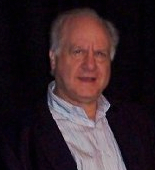 Steven E. Schutzer, MD
Steven E. Schutzer, MD
Professor of Medicine
New Jersey Medical School, Rutgers University,
Newark, NJ
[email protected]
https://njms.rutgers.edu/departments/medicine/divisions/pulm/allergy/schutzer.cfm
Sunday Facilitator
Steven Schutzer, MD is a physician-scientist who trained and was on the faculty at Cornell University Medical College, New York Hospital, and Rockefeller University, before joining New Jersey Medical School. His research has focused on the interface of the immune system and microbes. Particular areas of research interest are Lyme and Tick diseases, neuroimmunology, and immunology. Dr. Schutzer is board certified in Internal Medicine, Allergy and Clinical Immunology, and Clinical Laboratory Immunology and is Professor of Medicine at UMDNJ, Rutgers.
Dr. Schutzer’s research is funded by the National Institutes of Health and other organizations.
Raphael B. Stricker, MD 
Union Square Medical Associates
San Francisco, CA
[email protected]
Evidence Suggests the Potential for Sexual Transmission
Dr. Stricker received his medical degree and training in Internal Medicine at Columbia University in New York. He did subspecialty training in Hematology/Oncology at the University of California San Francisco, and supplemental training in Immunology and Immunotherapy at California Pacific Medical Center in San Francisco. He is currently Medical Director of Union Square Medical Associates, a multispecialty practice in San Francisco.
Dr. Stricker is Past President of the International Lyme and Associated Diseases Society (ILADS). He is also a member of the American Society of Hematology (ASH), the American Society for Microbiology (ASM), the American Federation for Medical Research (AFMR) and the American Society for Reproductive Immunology (ASRI).
He is a recipient of the American Medical Association Award for Physician Excellence and an Outstanding Reviewer Award from the Annals of Internal Medicine. He has authored over 200 medical journal articles and abstracts.
Areas of special interest include coagulation disorders, immunodeficiency, immunologic infertility, emerging infectious diseases and tick-borne diseases.
Klemen Strle, MD 
Instructor of Medicine, Harvard Medical School
Assistant in Immunology, Massachusetts General
Microbial and Host Factors in Immune Responses in Lyme Disease
Dr. Strle’s work is focused on better understanding how host-pathogen interactions shape the type of inflammatory immune responses that are associated with more severe clinical manifestations of Lyme disease, including post-treatment syndromes. The main objective of this work is to develop biomarkers that could identify patients at greater risk for more severe disease and to elucidate the pathogenic mechanisms that could help guide more effective treatment strategies for such patients.
Dr. Strle’s recent findings demonstrate that disadvantageous clinical outcomes in Lyme disease, including more symptomatic early infection, post-treatment symptoms after erythema migrans (EM), and the development of more severe antibiotic-refractory Lyme arthritis, may result at least in part from inappropriate activation of inflammatory immune responses involving both microbial and host genetics. He has identified a particularly inflammatory B. burgdorferi RST1-strain and a host TLR1 polymorphism (1805GG), the combination of which results in a greater number of symptoms in patients with EM, an early disease manifestation, and a greater risk of developing antibiotic-refractory Lyme arthritis late in the illness (Strle K et al., Arthritis Rheum, 2012).
Dr. Strle has recently expanded this work to show that dysregulated Th17 immune responses, characterized by elevated IL-23 levels, may play a role in the development of post-infectious complications in a subset of patients with EM, providing a new paradigm for the study and possible treatment of such patients (Strle K et al., Clin Infect Dis, 2014). Moreover, he has contributed to the discovery of a novel autoantigen in Lyme disease (Drouin EE et al., Arthritis Rheumatol, 2013; Londono D et al., Arthritis Rheumatol, 2014). These new findings suggest that excessive immune responses, shaped by microbial and host genetics, may play a role in post-treatment syndromes after various manifestations of Lyme disease in a subset of patients.
Complete List of Published Work in MyBibliography: (26 peer-reviewed publications)
https://www.ncbi.nlm.nih.gov/sites/myncbi/klemen.strle.1/bibliography/44186306/public/?sort=date&direction=ascending.
 Ying Zhang, PhD
Ying Zhang, PhD
Professor of Molecular Microbiology and Immunology
Bloomberg School of Public Health
Johns Hopkins University, Baltimore, MD
[email protected]
https://www.jhsph.edu/faculty/directory/profile/3860/Zhang/Ying
Borrelia Persister Drugs: Implications for Improved Treatment
Dr. Ying Zhang is a Professor at Department of Molecular Microbiology and Immunology, Johns Hopkins Bloomberg School of Public Health, Baltimore, USA. His research interests are in bacterial persistence, antibiotic resistance, and pathogenesis, and translation of research findings into improved disease control. Although most of his productive research career was on understanding mechanisms of antibiotic resistance and persistence in M. tuberculosis, more recently, he has been working on the problem of persistent Lyme disease. His group recently identified a range of FDA-approved drugs that have excellent activity against Borrelia burgdorferi persisters. This finding has generated considerable interest and opened up new opportunities for more effective treatment of persistent Lyme disease. In collaboration with colleagues, his group is interested to evaluate the promising drug candidates with high activity against Borrelia persisters and drug combinations in animal models and also in patients for more effective treatment of persistent Lyme.
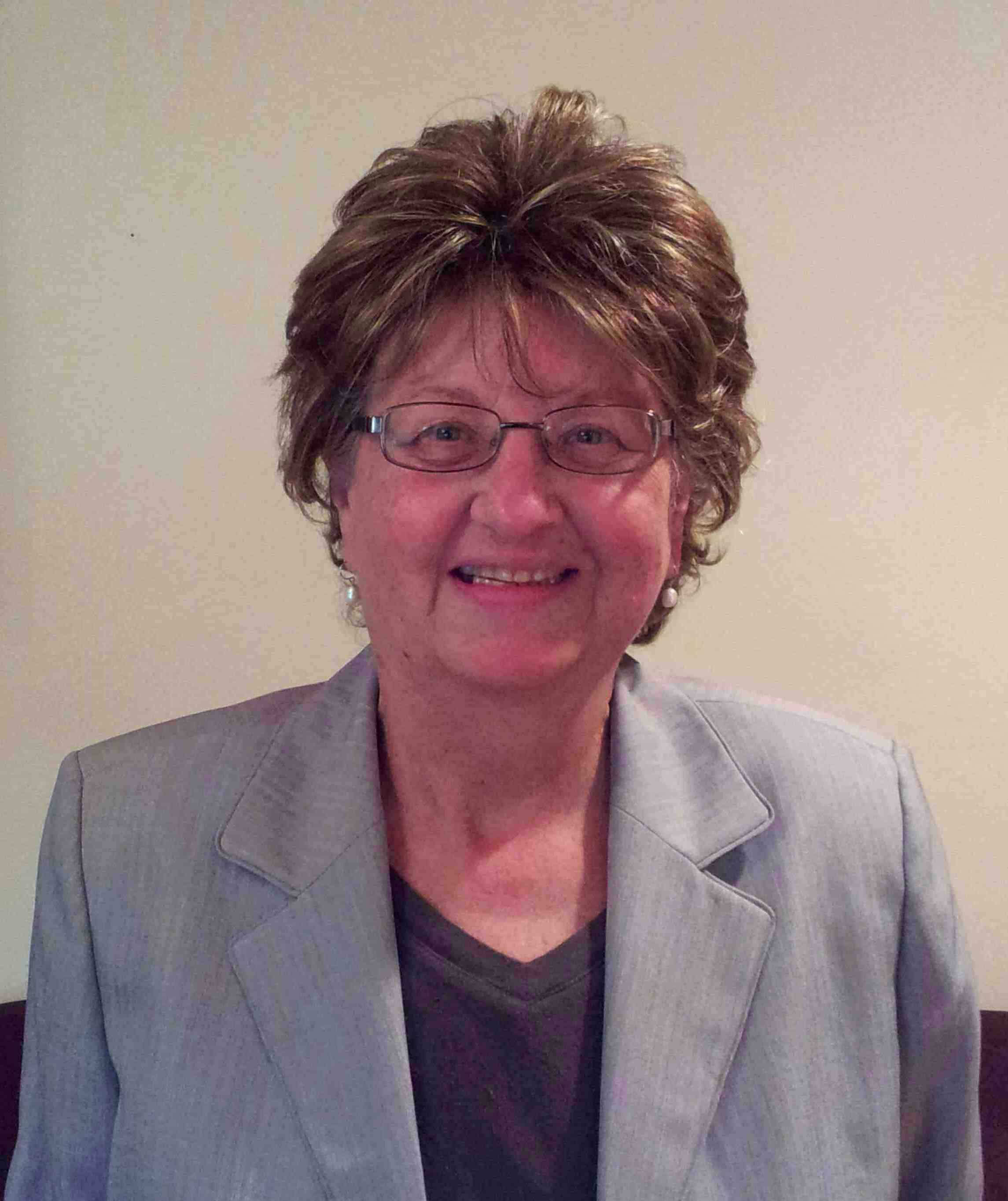 Patricia V. Smith
Patricia V. Smith
President, Lyme Disease Association, Inc. (LDA)
PO Box 1438 Jackson, NJ 08527
[email protected]
www.LymeDiseaseAssociation.org
Conference Planner / Organizing Committee
Patricia V. Smith, a Monmouth University graduate, is in her 18th year as President of the volunteer-run national non-profit Lyme Disease Association. A member of Columbia University’s Lyme & Tick-Borne Diseases Research Center Advisory Committee, member of the Environmental Protection Agency’s (EPA) PESP Partnership to promote avoidance of tick exposure, she is also former Chair of the (NJ) Governor’s Lyme Disease Advisory Council, former President/12-year member of the Wall NJ Board of Education and was FDA’s 2011 Lyme prevention conference session co-chair with CDC. In 2011 she presented a Lyme session to the New Jersey Education Association’s Annual Meeting. Ms. Smith, a 32 year Lyme advocate, has raised funds for researchers nationally─research acknowledged in 35 scientific journals.
Besides speaking, publishing, TV/radio appearances and organizing 16 CME accredited Lyme scientific conferences for doctors, she’s testified for and helped secure passage of state and federal bills for Lyme research and physician’s right to treat. Working with author Amy Tan, she created LDA’s LymeAid 4 Kids, a fund for children with no health coverage for Lyme that has awarded $250,000 to date for children whose families cannot afford to have children tested or begin treatment for Lyme disease.
Chosen Jackson NJ’s Chamber of Commerce 2008 Woman of the Year, she has also received a certificate of Special Congressional Recognition from RI Congressman James Langevin, and had a flag flown over the US Capitol by request of NJ Congressman Christopher Smith in honor of her work on Lyme. In 2012, she was invited to testify before the Foreign Affairs Committee, Africa, Global Health & Human Rights Health Subcommittee in Washington, DC. In 2013, she was invited to testify before the US House of Representatives Energy & Commerce Health Subcommittee on HR 610 (Smith-NJ), a bill to establish a federal Lyme & Tick-Borne Diseases Advisory Committee. In 2015, she was given the Courage in Advocacy Award by Lyme Connections in Connecticut.






